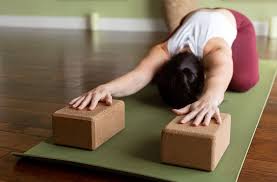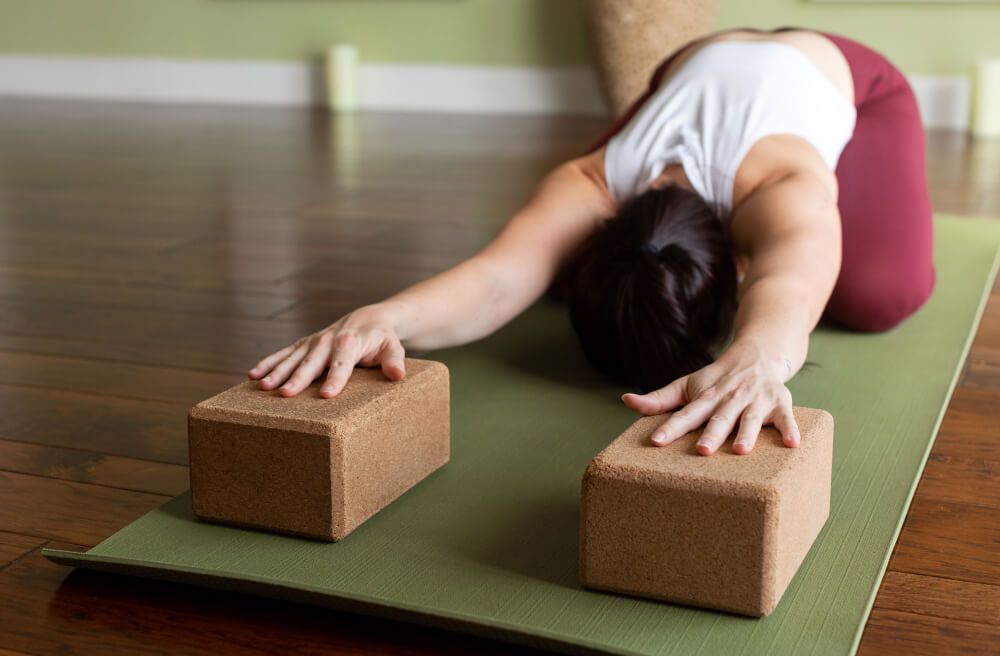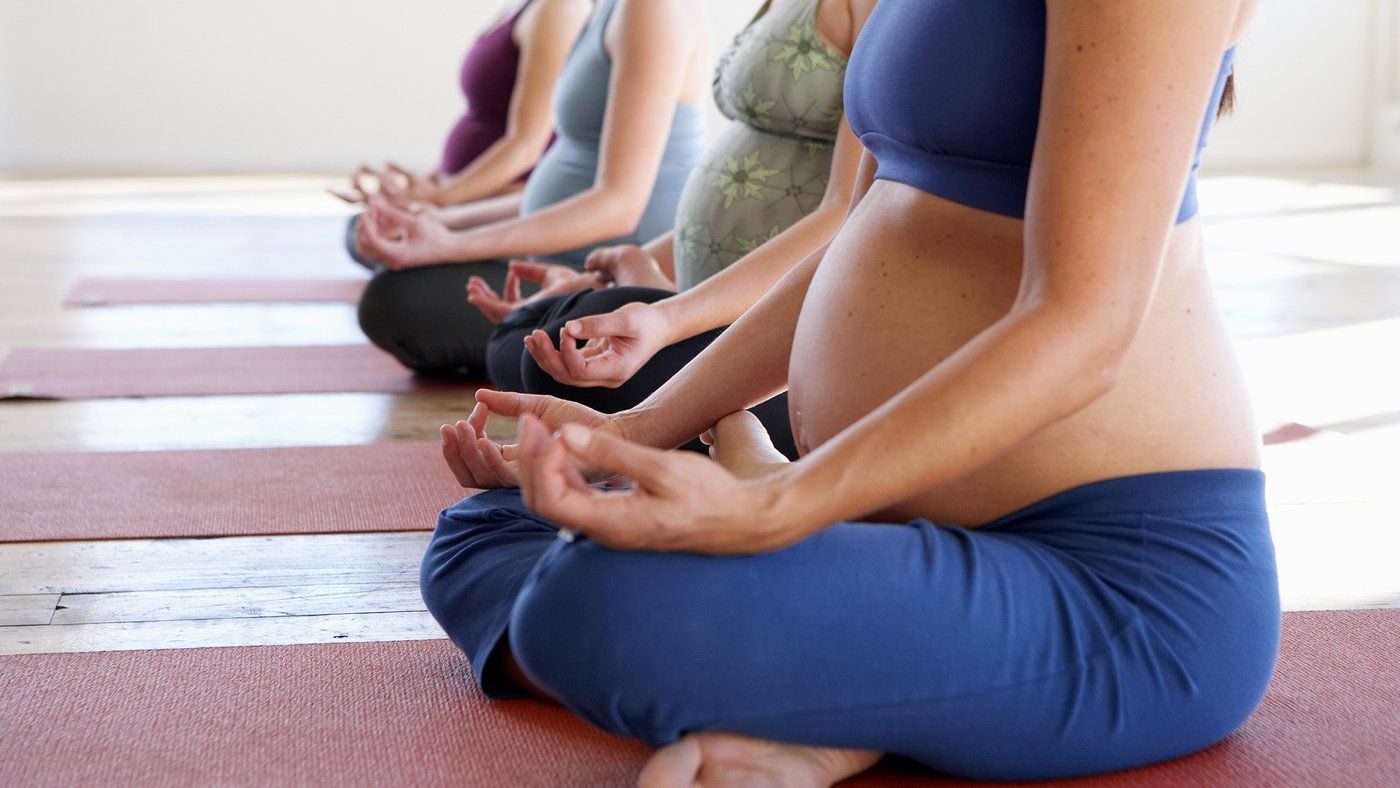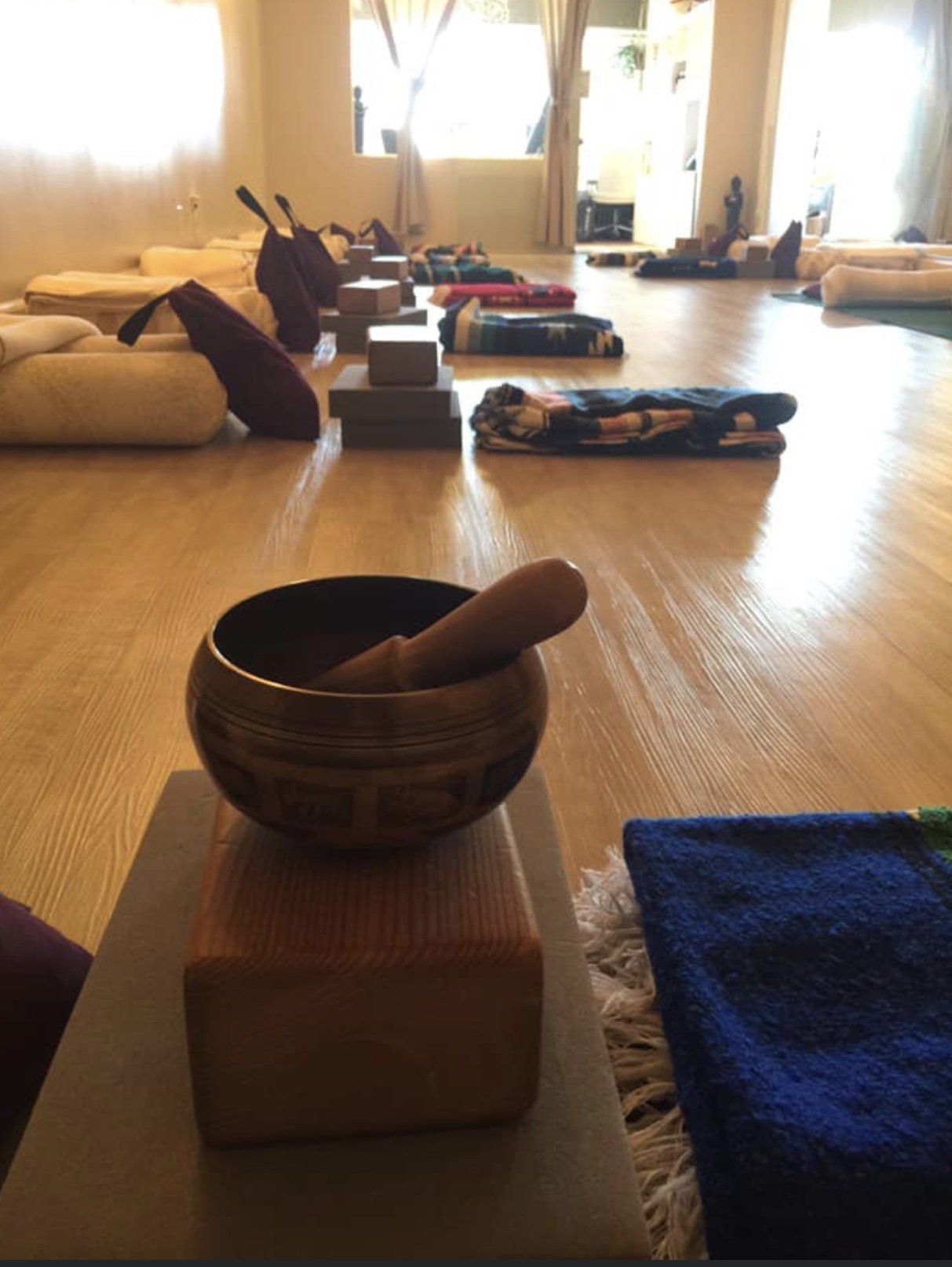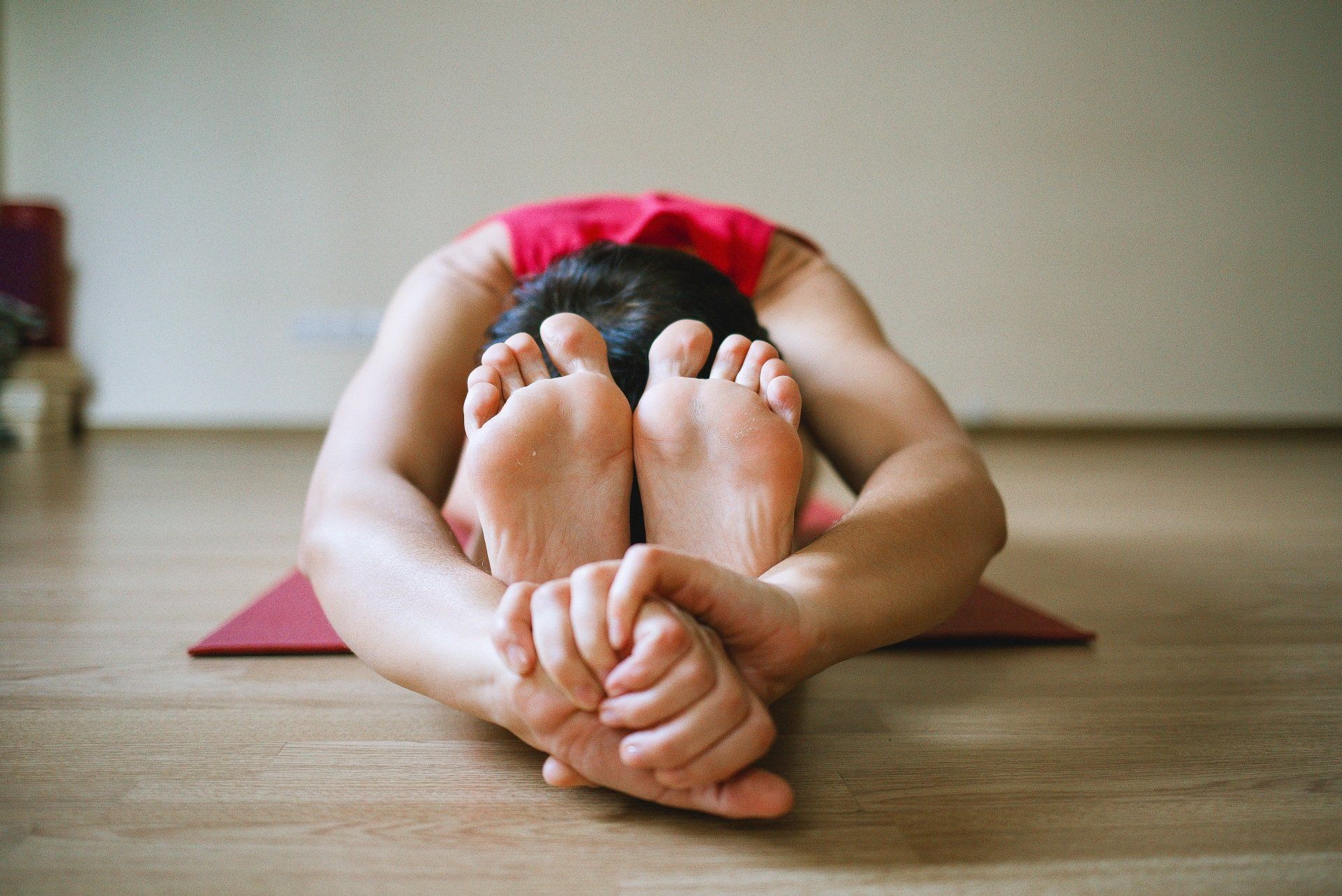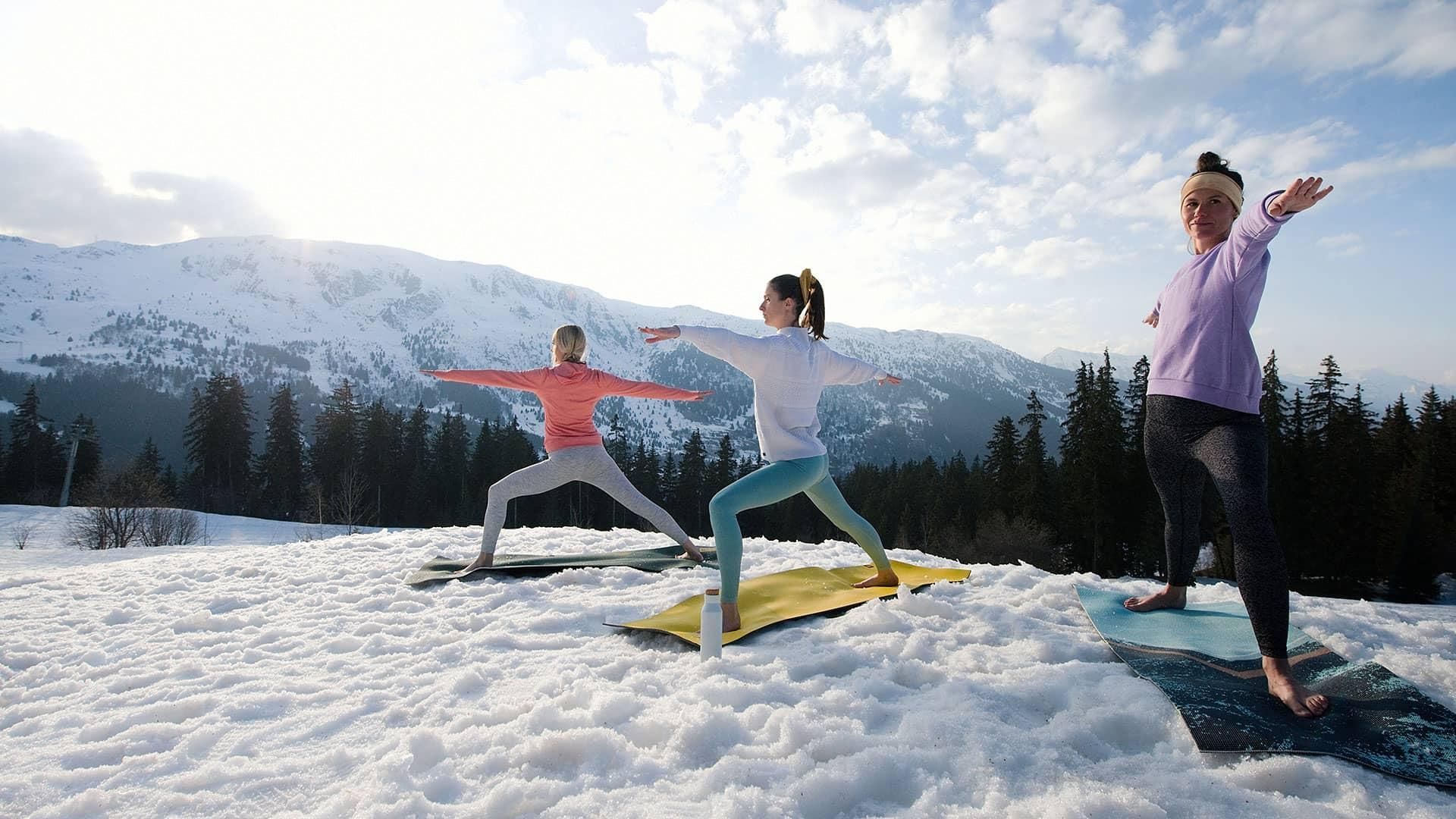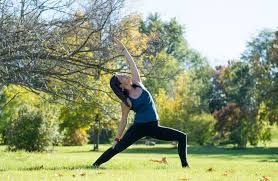February: Expressing Love & Embracing Self-Love

It’s the season of love.
Most people think of February 14th as a day to celebrate and recognize the love of their life and those dear to them. It is, and this is important! But what about celebrating self-love? Some people might think self-love is self-centered and ego driven but it is quite different. Self-love is being mindful and aware of what you need to be healthy and productive.
Psychology studies report that self-love and self-compassion are key for mental health and well being, keeping depression and anxiety at bay (Medical News Today, Ana Sandoiu March 23, 2018). When we don’t take care of ourselves and continue on the path of Doing vs. Being, we experience adverse health effects, such as, high blood pressure, irritable bowel syndrome, depression, heart disease, etc. Our inner critic, or in yoga terminology, the chitta vritti, is the monkey mind of continual thoughts running through our minds. We experience these thoughts in the form of ridiculing, judging, and constantly reminding us to remember what to pick up from the grocery store or what deadline is coming up. You get the picture.
According to Patanjali, “If you can control the rising of the mind into ripples, you will experience Yoga.” Practicing yoga is one way to cultivate self-love.
How do we achieve self-love?
Professor Neff, Sbarra and colleagues define self-compassion as a construct that encompasses three components:
1. Self-kindness
– treating oneself with understanding and forgiveness,
2. Recognition
of one’s place in shared humanity – acknowledging that people are not perfect and that personal experiences are part of the larger human experience,
3. Mindfulness –
bringing your attention to the here and now, experiences in the present moment. Bringing about emotional equanimity, calmness, clear rational thinking.
Yoga centers us, grounds us and brings us back to neutral. When we practice yoga we get in touch with our breath, physical body, emotional state, spiritual side, and our heart center. The physical and breath practice of yoga allows us to move with comfort to release tension in our body and quiet the voice of our inner critic. This allows us to feel freer boosting feelings of self-love and kindness. When we are kind and loving to ourselves, we can be kind and loving toward others. Appreciating the simple things in life.
When we are kind to ourselves and acknowledge that we are all ‘perfectly imperfect’ we treat ourself with kindness. When we pause to mindfully reflect on how we are breathing, physically feeling, and listening to our thoughts, we can begin to let go of our stress and tension and lower our levels of the stress hormone, cortisol, in our bodies.
Try it: It only takes a minute or two. You decide how you feel.
Take a moment to sit comfortably,
Close your eyes or gaze softly downward,
Notice your breathing. Is your breath short and shallow? Smooth? Hurried? Just notice without judgement.
Now, focus on slowing your breath down.
Smooth breath in, slow breath out.
Soften your physical body with each exhale.
Allow the negative thoughts in your mind to form ripples that move away from your consciousness.
Keep breathing for a minute or two or longer. Smooth inhale; smooth exhale….
Slowly, bring your awareness back to the present moment.
How do you feel?
This may be your first step toward self-love. Simply quieting your mind, quieting your body, and releasing your thoughts.
This is yoga: controlling the rising of the mind. Now direct your thoughts with positivity and kindness to yourself and toward others.
